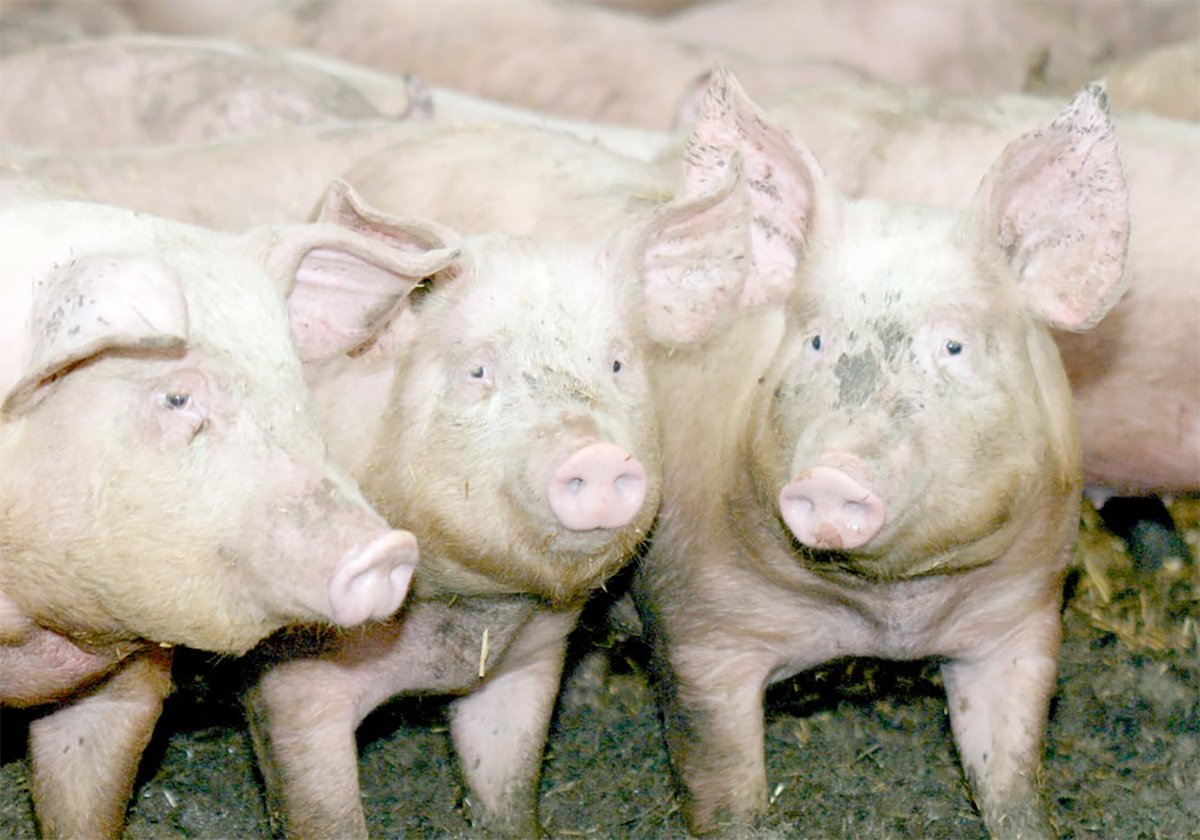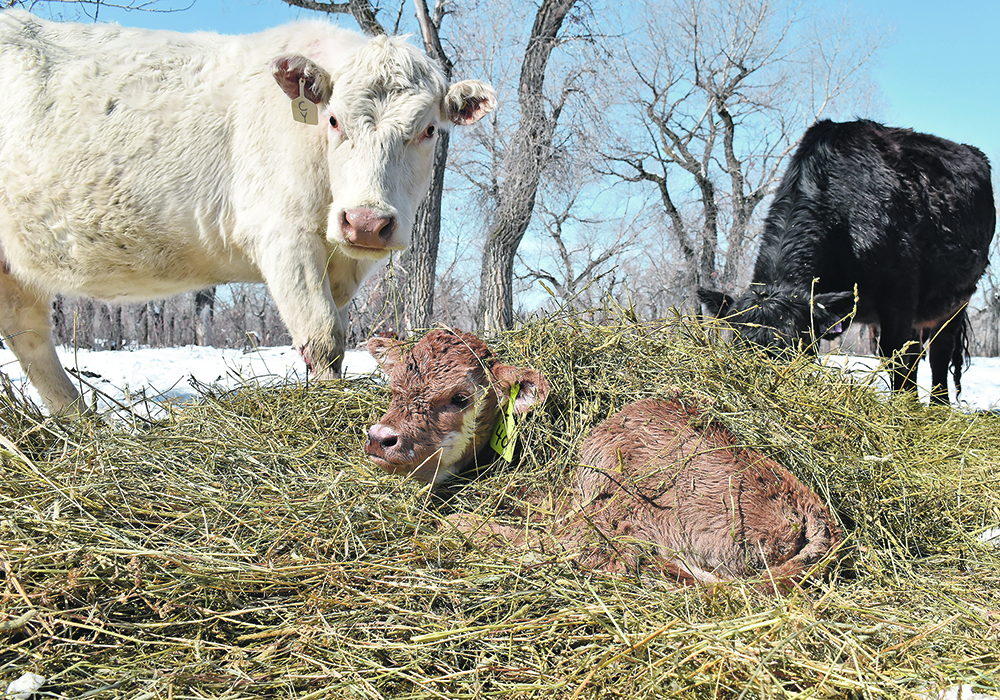Newborn calves are born with virtually no immunity of their own. They have a functional immune system at birth, but because the cow’s placenta does not allow antibodies to pass from the mother to the calf during pregnancy, the calf must receive most of its initial immunity from the antibody rich colostrum, or first milk of the cow.
This initial immunity is essential because it provides protective antibodies or immunoglobulins against many of the diseases that affect newborn calves, such as calf scours, navel abscesses, arthritis and pneumonia.
Read Also

The Western Producer Livestock Report – November 13, 2025
Western Producer Livestock Report for November 13, 2025. See U.S. & Canadian hog prices, Canadian bison & lamb market data and sales insights.
Even the vaccines we use to prevent scours in calves rely on this passive transfer of immunity in the colostrum. These vaccines are given to cows before calving to promote specific antibodies against bacteria and viruses that cause neonatal calf diarrhea.
However, the calf must receive these antibodies through the cow’s colostrum to receive the benefit of this protection.
The calf is able to absorb these antibodies at significant levels only during the first 12 hours of life. The gut’s closure to antibody absorption is a gradual process but begins to decline rapidly until complete closure occurs at about 24 hours of age.
After the gut closes, the antibodies can still have local effect within the gut, but they can no longer be absorbed into the blood stream. Calves that do not receive adequate amounts of colostrum immediately after birth are at a much higher risk of becoming sick and are also more likely to die.
Many cases of diarrhea, navel ill, septicemia and pneumonia in calves are a result of failing to receive an adequate level of cloistral immunity.
A recent study by Dr. Lisa Gamsjäger and Dr. Claire Windeyer of the University of Calgary’s School of Veterinary Medicine and other researchers has once again demonstrated the importance of making sure calves receive adequate colostrum at birth. These publications appeared in the November 2023 issue of the journal Preventive Veterinary Medicine.
In those studies, the researchers collected blood samples from 420 calves between the ages of one to seven days from six Alberta cow-calf herds. They only sampled calves that were apparently healthy and not being treated for any diseases.
In addition, they were able to access other data on all of these calves, including information such as age of their dam, sex of the calf, calving ease scores, whether supplemental colostrum was administered and recent dam vaccinations.
These herds all kept excellent records using a commercially available software program or paper records, which allowed researchers to also identify whether calves got sick or died before weaning and the calves’ eventual weaning weights.
The researchers used the blood samples to assess whether the calves had received adequate colostrum by measuring the antibodies or immunoglobulin G (IgG) present in the blood with a laboratory test known as single radial immunodiffusion.
It should be noted that this test requires laboratory testing, but there are other more simplified tests such as total protein measurements or a tool like a Brix refractometer that a veterinarian can use to estimate antibody levels without sending the samples to a laboratory.
For this study, the researchers evaluated two standard cutpoints for inadequate colostrum intake:
- The lower cutpoint of less than or equal to 10 g/L of immunoglobulin G was classified as failure of transfer of passive immunity, which means the calf probably consumed very little colostrum at all within the first 12 hours of life.
- The second cutpoint was slightly higher at between 10 and 24 g/L, which was classified as inadequate passive transfer of immunity. Several studies have demonstrated that this level of IgG is still less than ideal for beef and dairy calves. Only five percent of the calves had failure of passive transfer of immunity and 18 percent had inadequate transfer of passive immunity.
The impact of passive transfer of immunity through colostrum on the health and growth of these calves were remarkable.
The five percent of calves that had failure of passive transfer of immunity were almost eight times more likely to be treated for disease than the other calves and were an alarming 18.5 times more likely to die before weaning.
Even the 18 percent of calves that had less than adequate passive transfer of immunity were 10 times more likely to die and had a lower average daily gain on average by .09 kg/day, or .2 pounds per day.
The overall incidence of mortality in the study was 3.3 percent, which is comparable to many other studies. However, this study showed an even greater impact of inadequate passive transfer of immunity on mortality than had previous studies.
The studies performed in western Canadian herds demonstrate once again that colostral management can have a major impact on calf health and growth throughout the pre-weaning period.
Ensuring calves receive adequate colostrum is an important task at calving time.
Your veterinarian can take a few blood samples from calves between one and seven days of age to assess how well you are doing on your farm. There are also great resources online at the Beef Cattle Research Council website called Calf 911 that focus on managing colostrum so that newborn calves can thrive.
John Campbell is a professor in the department of Large Animal Clinical Sciences at the University of Saskatchewan’s Western College of Veterinary Medicine.















